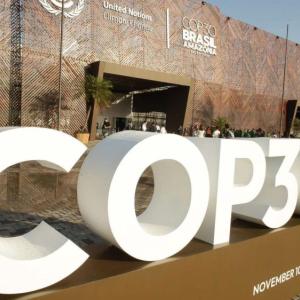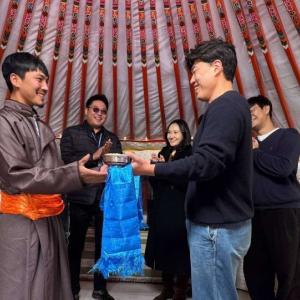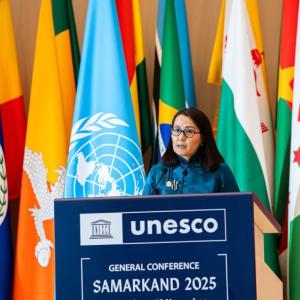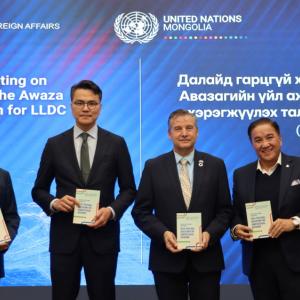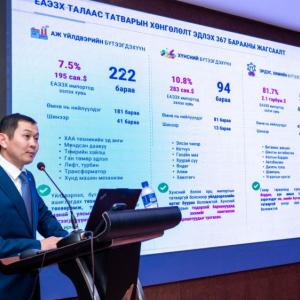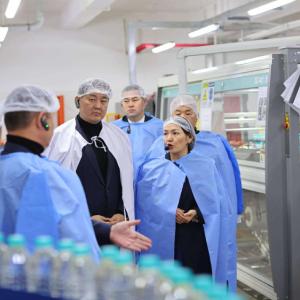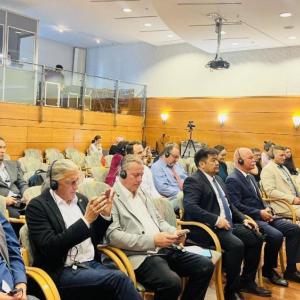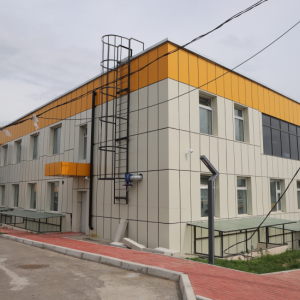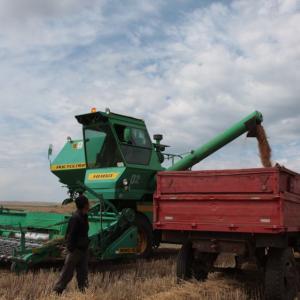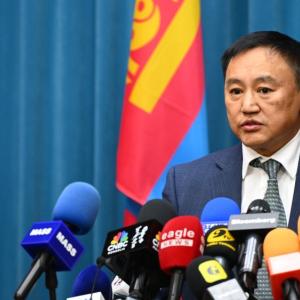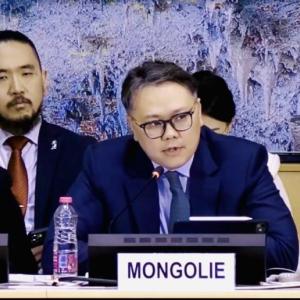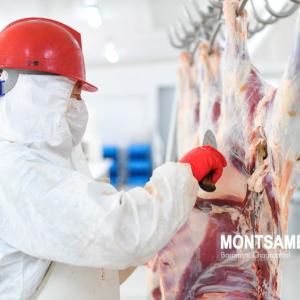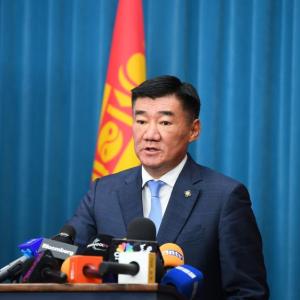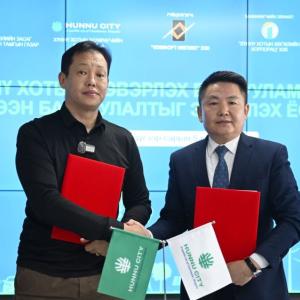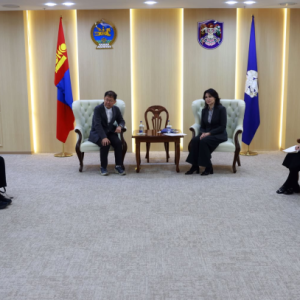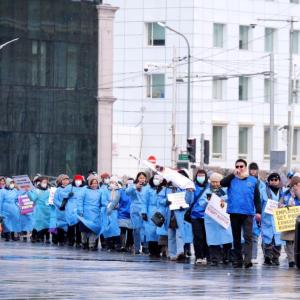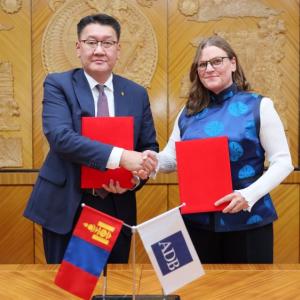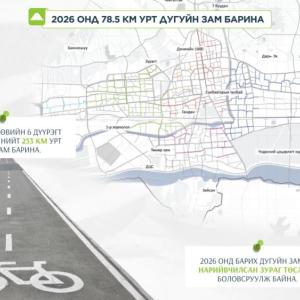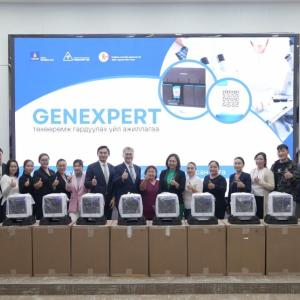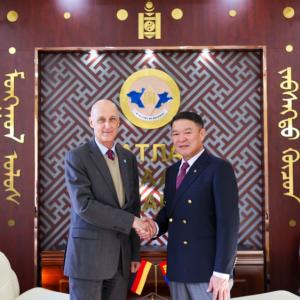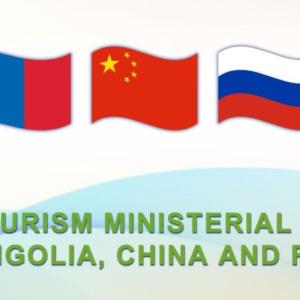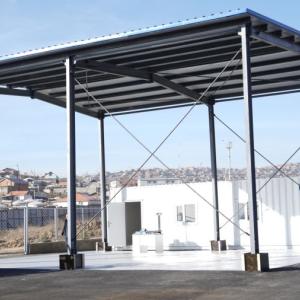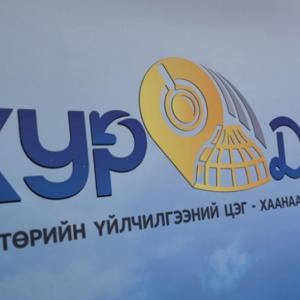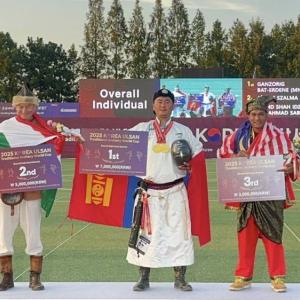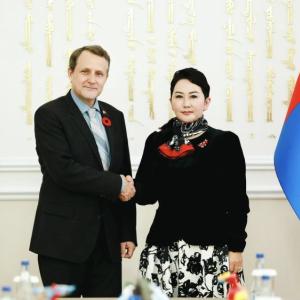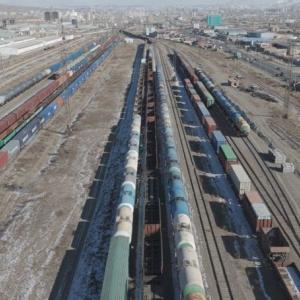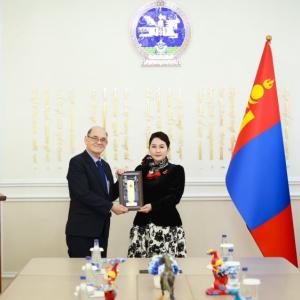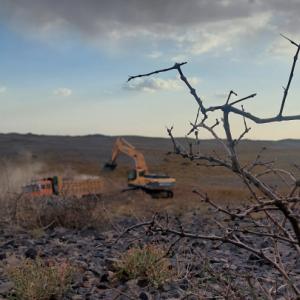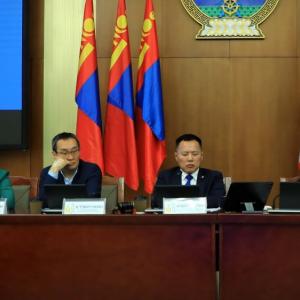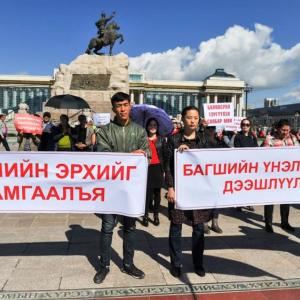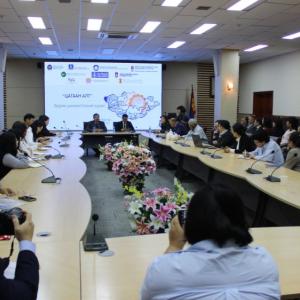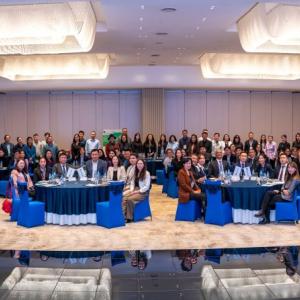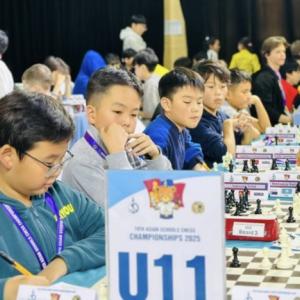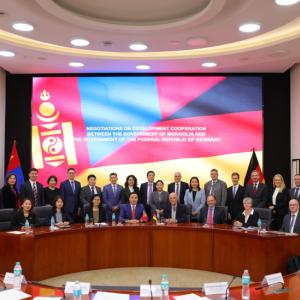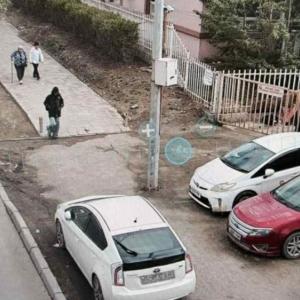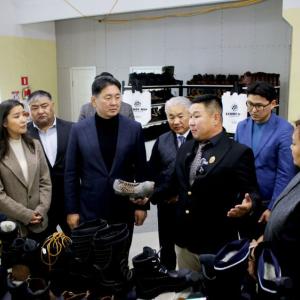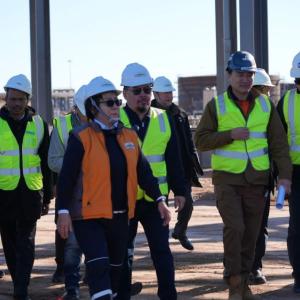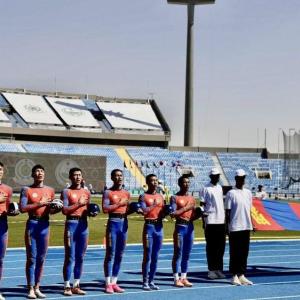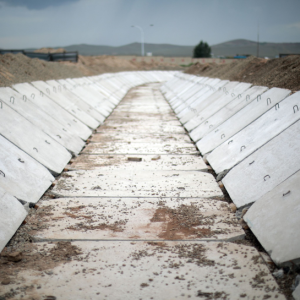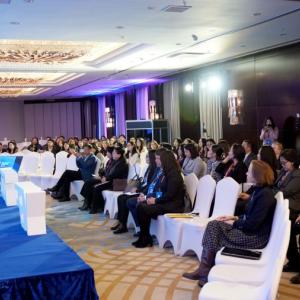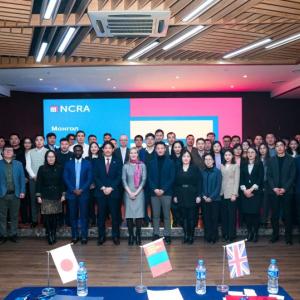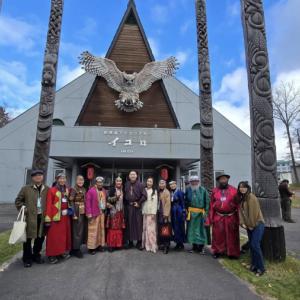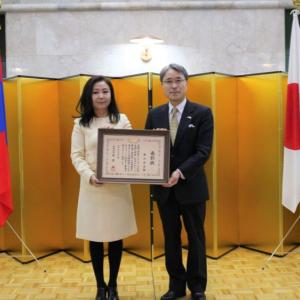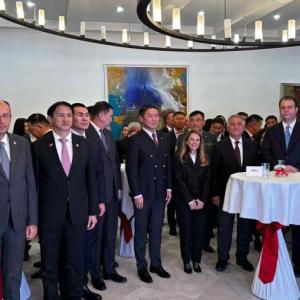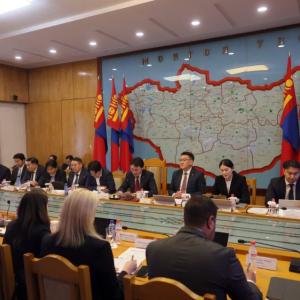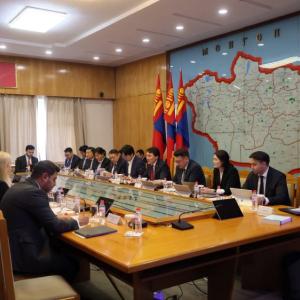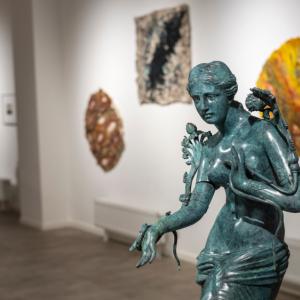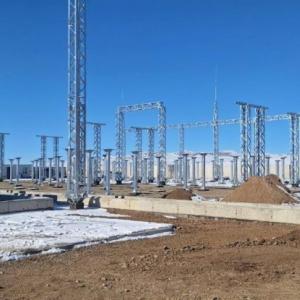Protection of Children in Mongolia Impacted by Dzud Discussed
Society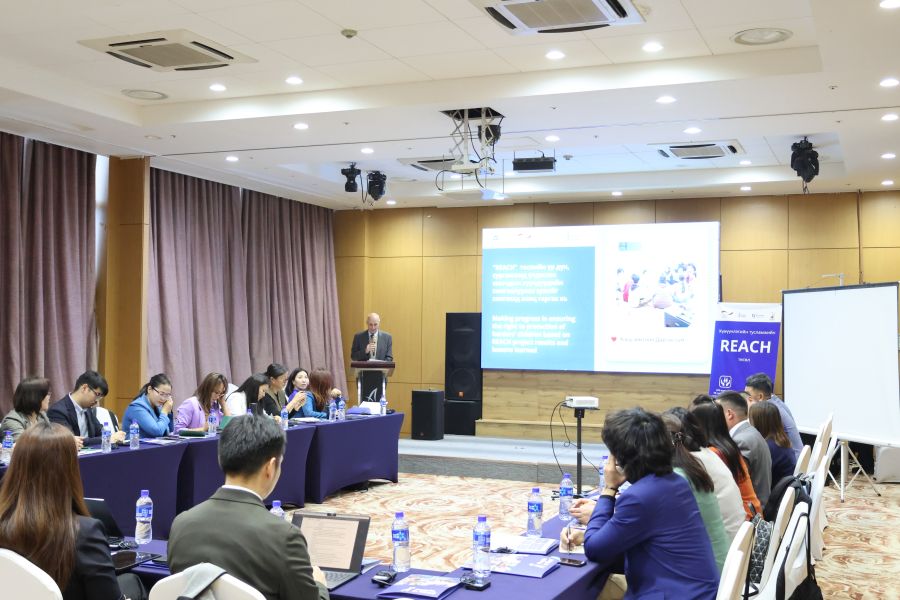
Ulaanbaatar, November 14, 2024 /MONTSAME/. People in Need (PIN) NGO in partnership with the Embassy of the Federal Republic of Germany in Mongolia completed the REACH Project and held a meeting-discussion to present the project results on October 29, 2024. The participants of the meeting discussed challenges in protecting the rights of children of herder families, particularly those affected by dzud, the natural disaster that occurs during Mongolia’s extreme winter and early spring, in the context of climate change, and shared experiences and good practices.
Running from May to October 2024, the project addressed critical
educational, health, and child protection needs in 18 remote soums across
Bayan-Ulgii and Khovd aimags.
Present at the meeting were Members of the State Great Khural Beisen
Bulan and Dr. Luvsanjamts Ganzorig, Health and Social Policy Advisor to the
President of Mongolia Badamtsetseg Batmunkh, and Ambassador Extraordinary and
Plenipotentiary of the Federal Republic of Germany to Mongolia Helmut Kulitz along
with representatives from key partners-Children's and Family
Development and Protection Departments in Khovd and Bayan-Ulgii aimags.
H.E. Mr.Helmut Kulitz, the
German Ambassador praised the initiative: “Rather than simply dispensing aid
material, the set-up of the project envisaged from the very beginning to
analyze, and improve where needed, existing local structures, tighten local
cooperation, probe into response action and improve preparedness and effective
response for the next dzud, whenever it will happen."
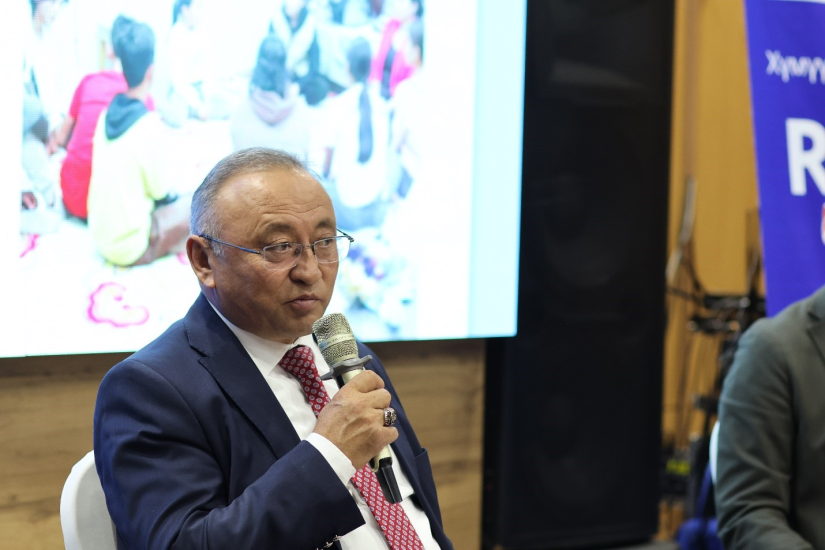
Dr. Beisen Bulan, Member of Parliament and Chairperson of the Standing
Committee on Environment, Food, and Agriculture, highlighted the importance of protecting
vulnerable communities:
“As a country deeply tied to our
nomadic traditions, Mongolia’s herders are at the frontline of climate change
impacts. This project has become instrumental in addressing urgent
needs and resolving critical issues effectively.
The REACH Project demonstrates the power of partnerships to bring real
solutions to our herder communities, helping them not only survive but thrive
in the face of climate challenges.”
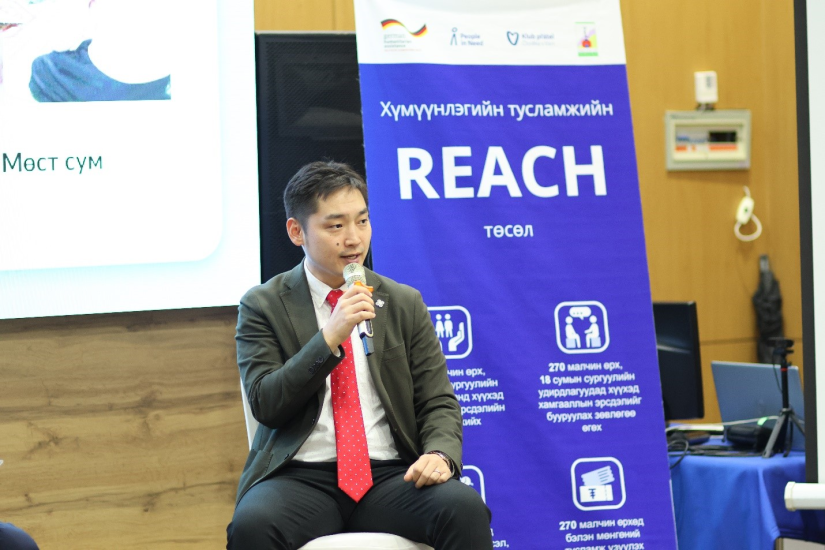
Dr. Luvsanjamts, Member of Paliament stated: “Our commitment to herder families must go beyond emergency
aid. It is essential that we work
towards long-term solutions that protect their livelihoods and ensure the
well-being of their children. The REACH project serves as a commendable model
in this regard. The outcomes of this meeting will be important in shaping our
future efforts in policy development and practical actions.”
Dr. Amarjargal Dagvadorj, Head of Programmes, People in Need Mongolia, emphasized the importance of local engagement:
“By working closely with local stakeholders from the outset, we ensure our
interventions are tailored, maximizing effectiveness and promoting
sustainable change within the local system. The project has demonstrated an
effective model for implementing measures against the harm to herder households
and violations of children's rights caused by dzud.”
Tunjee Dondogdorj and Baurjan Khadan, heads of the Children's and Family Development and Protection Departments in Khovd and Bayan-Ulgii aimags highlighted the groundbreaking nature of the project, noting that this initiative was the first project in their aimags to effectively reach herder households and deliver crucial child protection services.
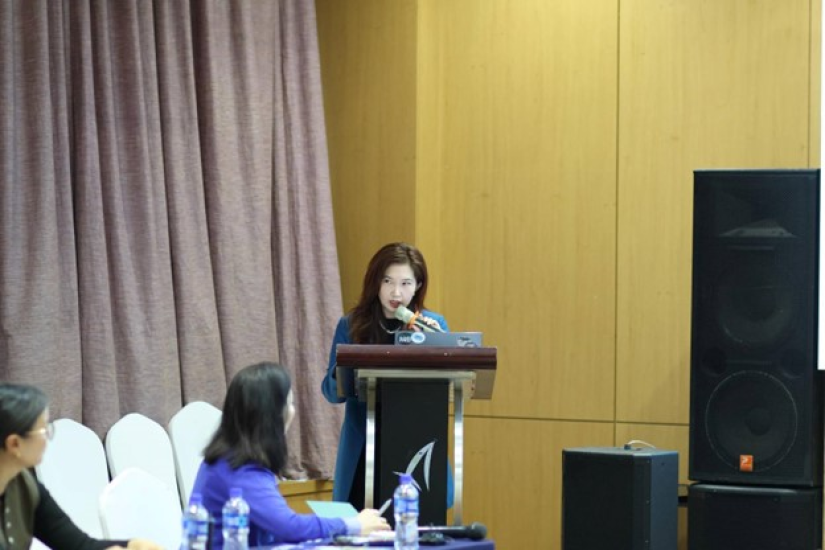
The REACH Project, a continuation of PIN’s long-standing presence in
Mongolia, builds on the organization’s first intervention during the dzud of
2008-2009. Since then, PIN has focused on both immediate humanitarian relief
and long-term development, particularly in light of the growing impacts of
climate change.
REACH Project Achievements:
- Child
Protection: A team of 30
professionals conducted risk assessments for 270 herder families and 18
school dormitories, providing tailored advice to reduce risks. Child
protection multi-disciplinary teams were introduced to communities.
- Educational
and Developmental Support:
3,400 children—including 540 from herder
families and 2,860 from school dormitories—received educational materials,
books, and vitamin packages. Each dormitory also received 100 sets of
books to encourage productive use of free time.
- Financial
Assistance: 270
households were provided with one-time cash assistance of 660,000 MNT to
meet the educational and health needs of their children.
 Ulaanbaatar
Ulaanbaatar





